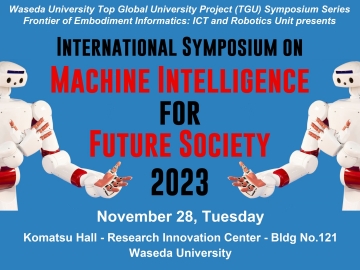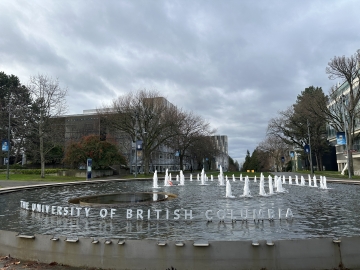An international workshop “Workshop on Foundations of Game Theory: Logic, Bounded Rationality, and Decisions” was held in person on November 28 and 29 at the Ono Memorial Auditorium, hosted by the Center for Positive/Empirical Analysis of Political Economy.
This workshop discussed the methodology of game theory, which studies and applies not only in economics but also in numerous other fields. The purpose of the workshop was to discuss how to consider limitation to decision making by rational agents in recent research. Not only economists but also philosophers and mathematicians participated for discussions that expand the horizons and new directions of game theory.
Speech Summary:
November 28, 2022 (Monday)
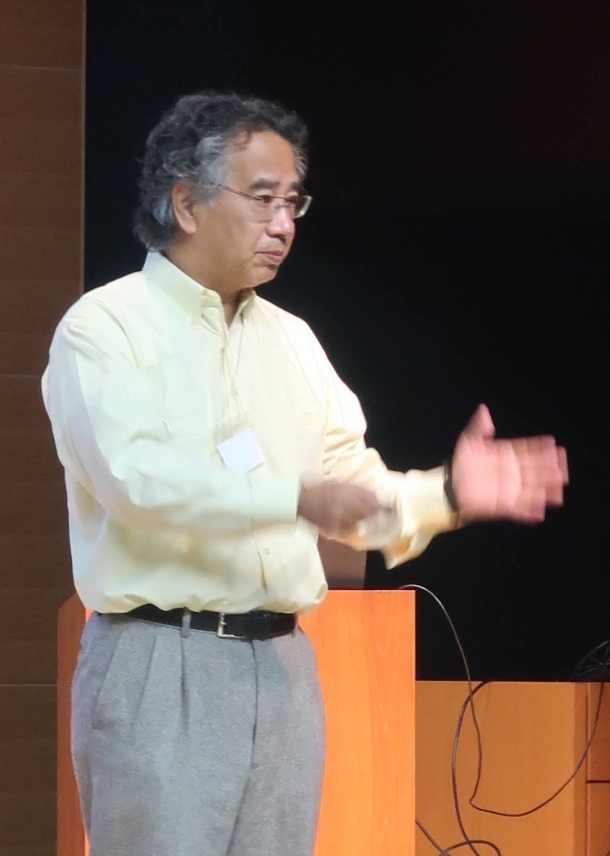 Dr. Mamoru Kaneko (Professor Emeritus, University of Tsukuba and Waseda University), the first speaker on the first day, summarized the relationship between game theory and mathematical logic. He also showed what kind of concepts should be shared and distinguished therein. The participants could understand and relate to the theme of this workshop thanks to this talk. He spoke about how mathematical logic should be viewed as the study of analyzing human thoughts and mental activities through mathematical methods, and how it should be applied to game theory for establishment of a new methodology to provide more precise analysis of people’s social behavior.
Dr. Mamoru Kaneko (Professor Emeritus, University of Tsukuba and Waseda University), the first speaker on the first day, summarized the relationship between game theory and mathematical logic. He also showed what kind of concepts should be shared and distinguished therein. The participants could understand and relate to the theme of this workshop thanks to this talk. He spoke about how mathematical logic should be viewed as the study of analyzing human thoughts and mental activities through mathematical methods, and how it should be applied to game theory for establishment of a new methodology to provide more precise analysis of people’s social behavior.

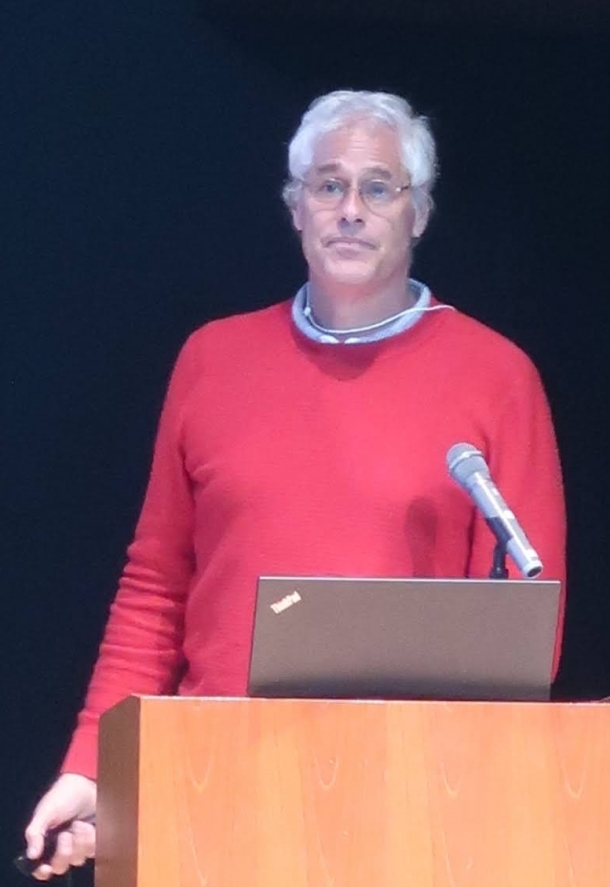 Dr. Jefferey Kline (Associate Professor, Queens University, Australia) introduced his approach to the problem of international tax competition as one of the applications of game theory. In particular, he pointed out that existing studies are limited to static analysis and emphasized the importance of dynamic analysis.
Dr. Jefferey Kline (Associate Professor, Queens University, Australia) introduced his approach to the problem of international tax competition as one of the applications of game theory. In particular, he pointed out that existing studies are limited to static analysis and emphasized the importance of dynamic analysis.
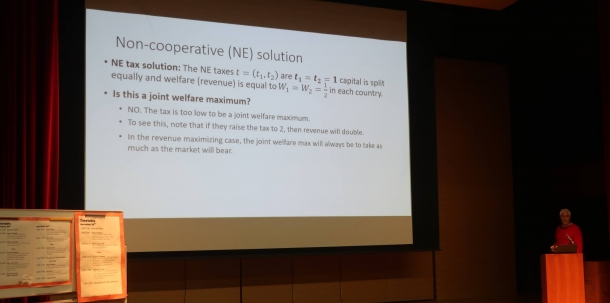
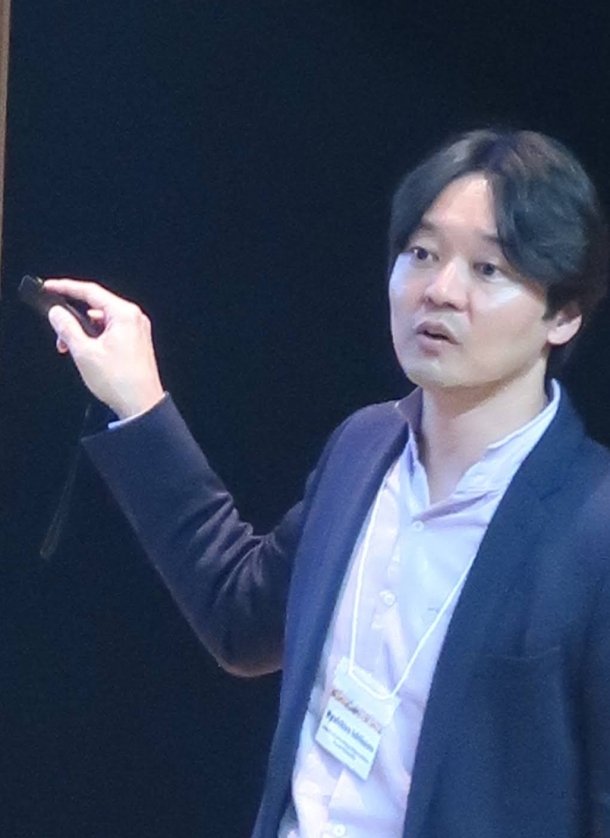 Dr. Ryuichiro Ishikawa*1 (Professor, Waseda University) pointed out the problem of backward induction, which is often used in game theory, and emphasized the need of the analysis considering that people’s cognitive ability regarding future expectations is not so high.
Dr. Ryuichiro Ishikawa*1 (Professor, Waseda University) pointed out the problem of backward induction, which is often used in game theory, and emphasized the need of the analysis considering that people’s cognitive ability regarding future expectations is not so high.

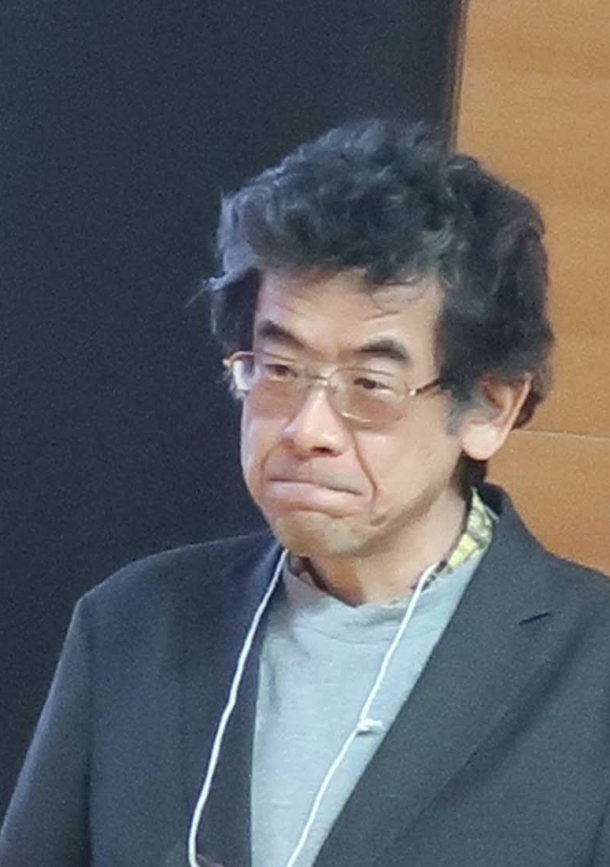 Dr. Nobuyuki Suzuki (Professor, Shizuoka University) emphasized the difference between the existence of optimal decision making in game theory and its playability. From this point of views, he showed the difficulty of using quantification symbols in mathematical logic.
Dr. Nobuyuki Suzuki (Professor, Shizuoka University) emphasized the difference between the existence of optimal decision making in game theory and its playability. From this point of views, he showed the difficulty of using quantification symbols in mathematical logic.

The first day ended with a lively discussion among the participants on the relationship between mathematical logic and game theory based on the presentations.
November 29, 2022 (Tuesday)
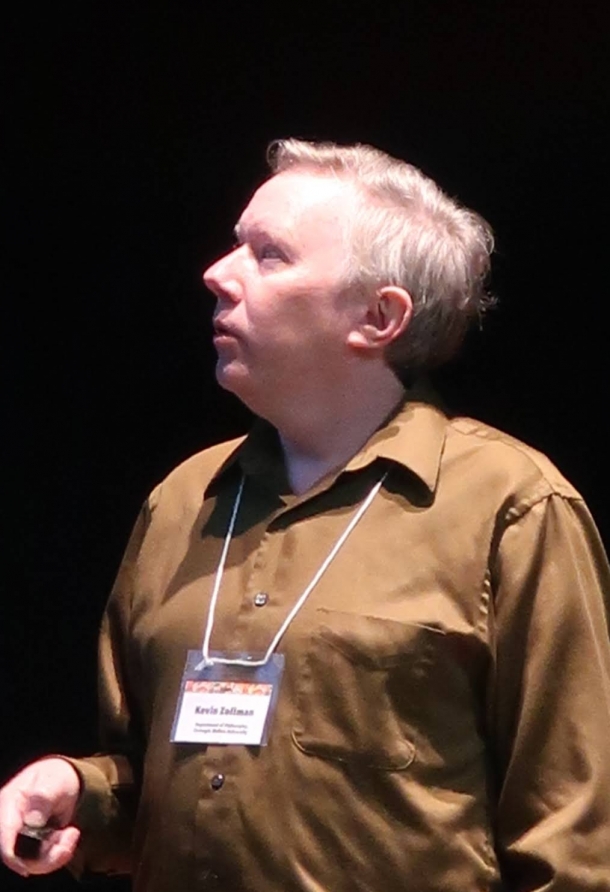 As the first speaker of the second day, Dr. Kevin Zollman (Professor, Carnegie Mellon University, USA) presented a new solution concept for cheap-talk games. He showed that the relationship between private information and decision making can be analyzed more precisely through a new solution concept constructed by combining multiple existing solutions.
As the first speaker of the second day, Dr. Kevin Zollman (Professor, Carnegie Mellon University, USA) presented a new solution concept for cheap-talk games. He showed that the relationship between private information and decision making can be analyzed more precisely through a new solution concept constructed by combining multiple existing solutions.
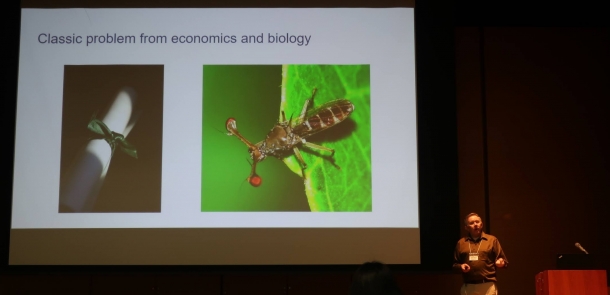
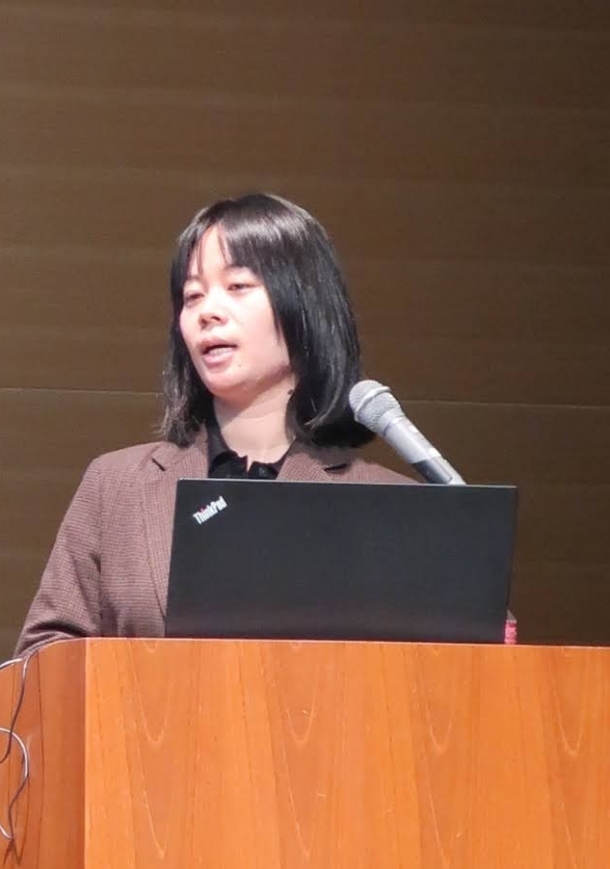 Dr. Liping Tang (Research Fellow, Waseda University) spoke about language politeness in communication and its strategic nature. She analyzed how a speaker’s use of polite language affects the listener’s response to the messages in social networks that express connections among people.
Dr. Liping Tang (Research Fellow, Waseda University) spoke about language politeness in communication and its strategic nature. She analyzed how a speaker’s use of polite language affects the listener’s response to the messages in social networks that express connections among people.
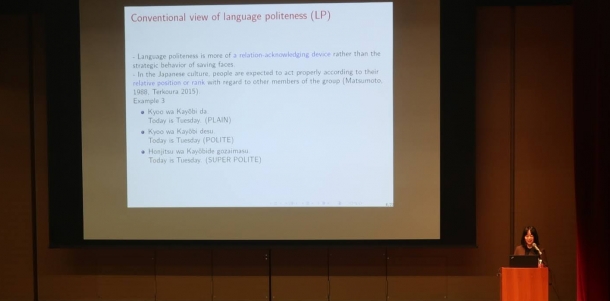
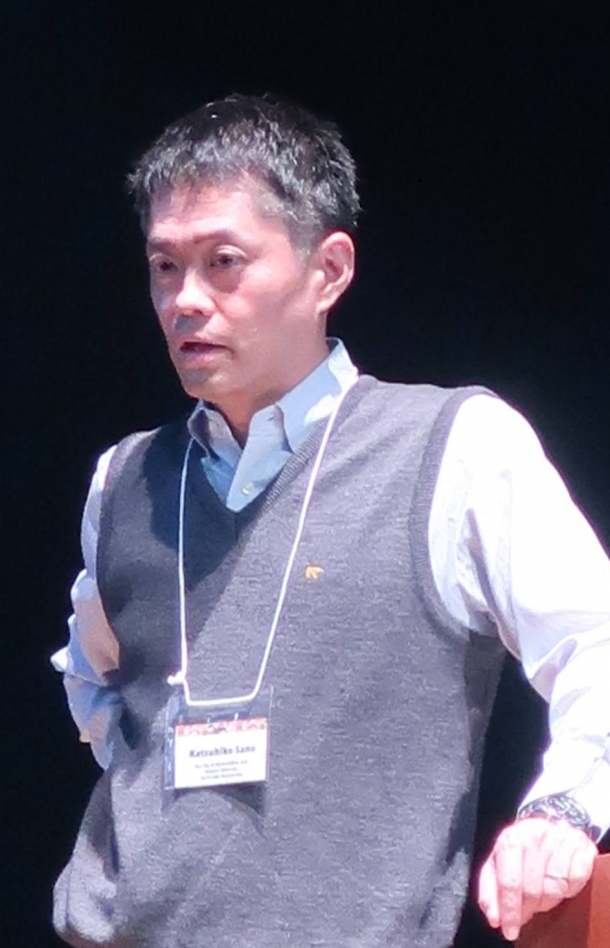 Dr. Katsuhiko Sano (Associate Professor, Hokkaido University) presented a new framework for collective intelligence using modal logic. This framework can be used as a mathematical model of autonomous decentralized systems applying game theory, and the participants share a research direction that it facilitates the connection between the field of artificial intelligence and game theory.
Dr. Katsuhiko Sano (Associate Professor, Hokkaido University) presented a new framework for collective intelligence using modal logic. This framework can be used as a mathematical model of autonomous decentralized systems applying game theory, and the participants share a research direction that it facilitates the connection between the field of artificial intelligence and game theory.
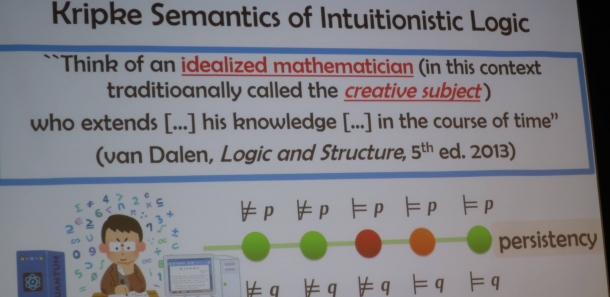
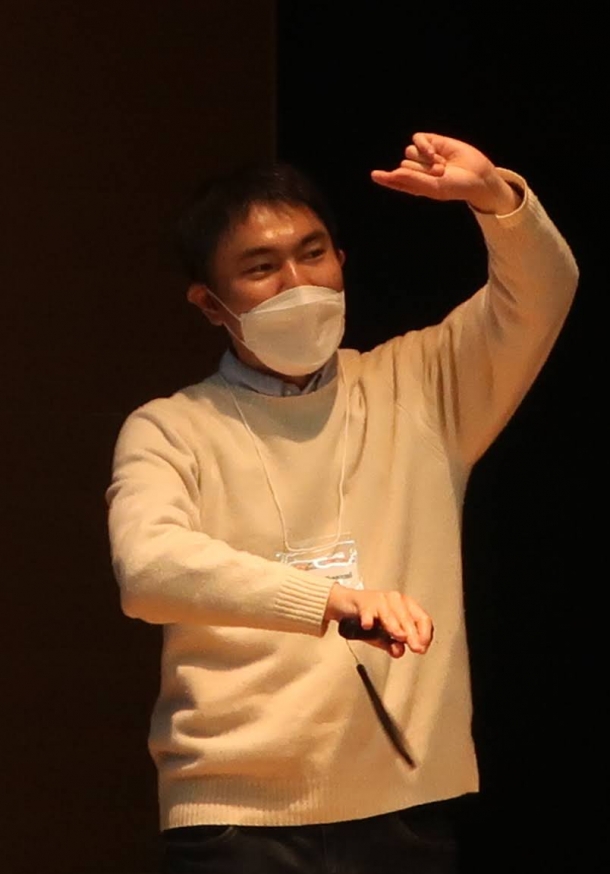 Dr. Daisuke Ikegami (Associate Professor at Shibaura Institute of Technology) provided a topic on strategy decidability in game theory based on the Axiom of Determinacy in axiomatic set theory. The existence of equilibrium and its playability have long been discussed in game theory, and it became clear whether it is possible to construct a system that satisfies the Axiom of Determinacy.
Dr. Daisuke Ikegami (Associate Professor at Shibaura Institute of Technology) provided a topic on strategy decidability in game theory based on the Axiom of Determinacy in axiomatic set theory. The existence of equilibrium and its playability have long been discussed in game theory, and it became clear whether it is possible to construct a system that satisfies the Axiom of Determinacy.

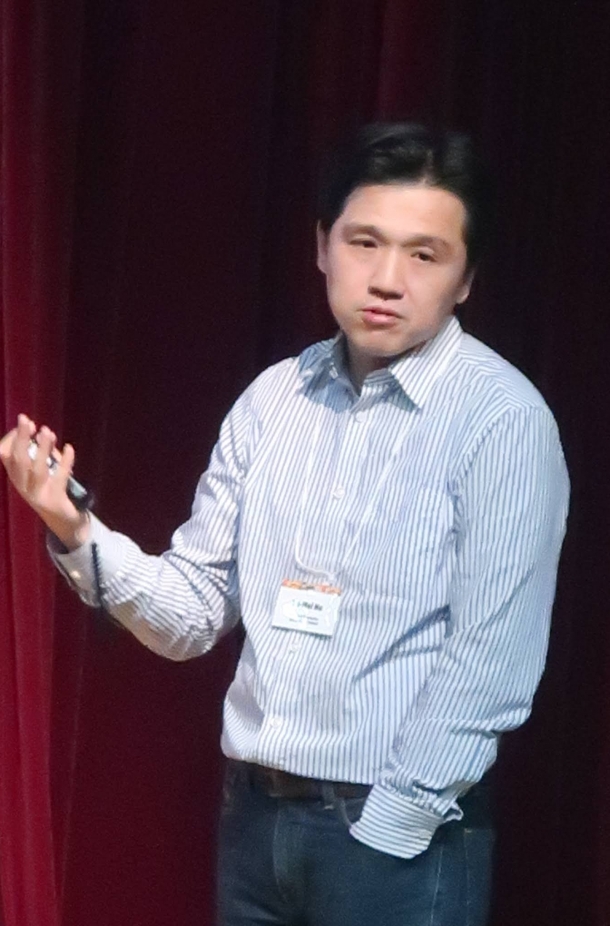 The last presenter, Dr. Tai-Wei Hu (Professor, University of Bristol, UK), presented a new framework for analyzing “empathy” in game theory. This approach can be applied to the formation of conventions, which has long been discussed in philosophy, and to the analysis of cooperative behavior within a society. He showed the possibility of more precise analysis of social order.
The last presenter, Dr. Tai-Wei Hu (Professor, University of Bristol, UK), presented a new framework for analyzing “empathy” in game theory. This approach can be applied to the formation of conventions, which has long been discussed in philosophy, and to the analysis of cooperative behavior within a society. He showed the possibility of more precise analysis of social order.
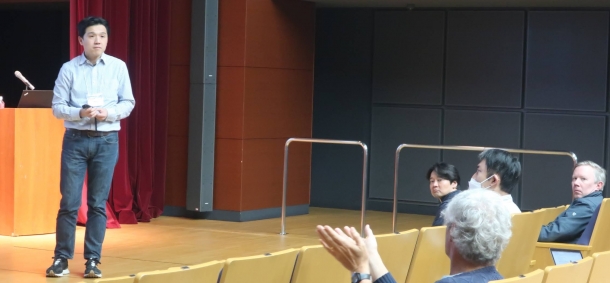
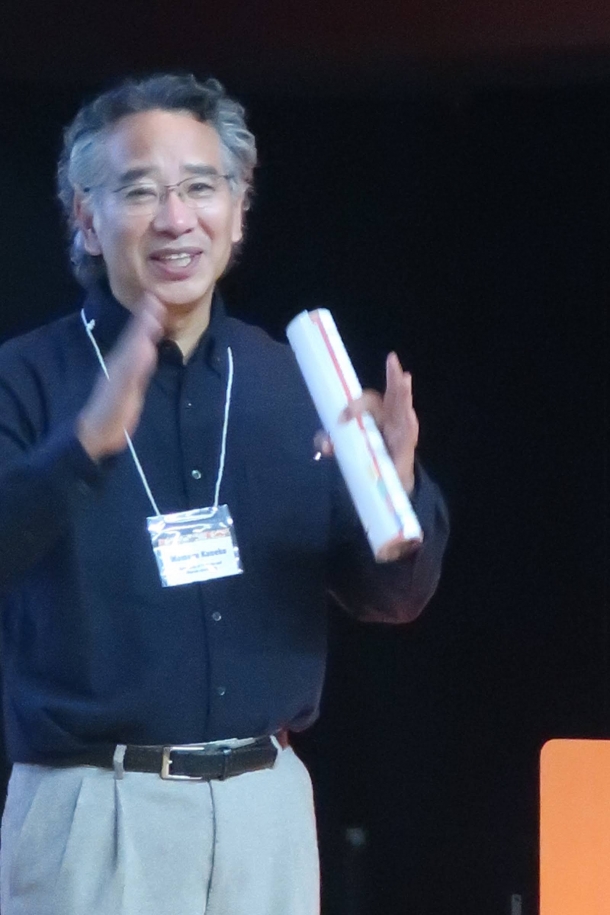 In summarizing the workshop, Dr. Mamoru Kaneko commented that it was a pleasure to hold such an interdisciplinary and interactive workshop in person under COVID-19. Many of the participants also commented that it was a wonderful opportunity to have a lively and engaging discussion among all the researchers from different fields.
In summarizing the workshop, Dr. Mamoru Kaneko commented that it was a pleasure to hold such an interdisciplinary and interactive workshop in person under COVID-19. Many of the participants also commented that it was a wonderful opportunity to have a lively and engaging discussion among all the researchers from different fields.
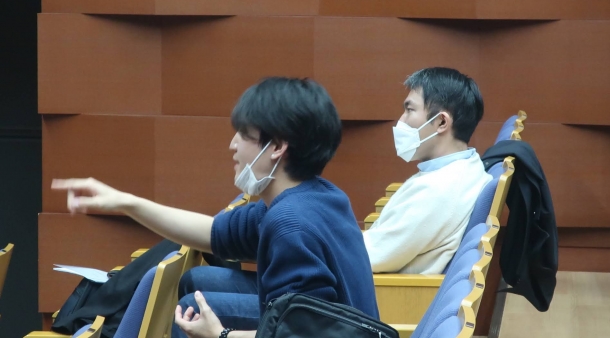
Comments from participating students
TENG, Kenyu Graduate School of Economics, M2
I was very pleased to be able to participate in the workshop on “Foundations of Game Theory”. All the presentations were impressive, and I strongly feel that the detailed discussions among the presenters on individual issues conveyed to the participants their enthusiasm as researchers.
I believe that these workshops had a greater impact on the students and general public as well as the researchers, to be exposed to the frontiers of academia, to think systematically about real-world problems, and to broaden their perspectives.
Since the theme was on the fundamentals of game theory, I was able to rethink the theory from the very beginning. As a specialist in game theory, it was an eye-opening experience for me to consider whether the assumptions and other things that I had taken for granted in game theory corresponded to reality.
For example, I was very impressed by Prof. Nobu-Yuki Suzuki’s discussion in mathematical logic regarding the fact that we can prove the existence of a solution, but the solution itself is unknown. Indeed, it has been mathematically proven by Prof. Nash that equilibrium always exists in games. However, it is not hard to imagine that players often do not know the specific strategy.
Another example of the discrepancy between theory and reality appeared in the presentation by Professor Ryuichiro Ishikawa. It is well known that in extensive games, backward induction is used to search for equilibria. However, in the centipede game, players are supposed to choose their strategies dozens of times and finally take actions to maximize their own profit as if they have forgotten their opponents’ actions so far. Continuing to engage in this thinking with each other will only result in lower profits for both players. Realistically speaking, game theory does not explain this well, even though cooperative behavior with higher gains is observed. Prof. Ishikawa showed that a more realistic equilibrium can be derived by adding the cognitive constraint that players cannot distinguish between miniscule gains.
Game theory has made it possible to explain many phenomena, but this workshop has also given me a strong sense of some inadequate setting to research. In the future, I would like to study and research game theory, keeping the discussions here in mind.
*1 Professor Ryuichiro Ishikawa, Faculty of International Research and Education, School of International Liberal Studies: He is a member of the center for Positive/Empirical Analysis of Political Economy and organized the two days’ workshop.


